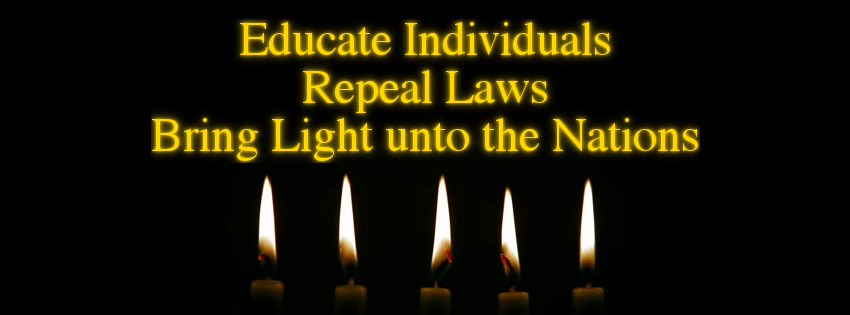This coming Shabbat, the parashah is Balaq (Bemidbar/Numbers 22:2–25:9). This is the story of Balaq, king of Moav, who wants to attack the Israelites. He consults the foreign prophet Bil`am for help in cursing Israel so they can be defeated, but God says to Bil`am that Israel is blessed. Balaq reluctantly accepts the futility of his plan. Finally, the camped Israelites whore out with Midianite women and are punished.
In this parashah, we learn that random aggression is not tolerated. One must be justified in attacking someone else, which Balaq was not. He, like Kings Sihon and Og, wanted to attack Israel, but he at least had the wisdom to consult advisors. We also learn that cruelty to animals is not seen kindly by God.
Bemidbar 22:5-6
וַיִּשְׁלַח מַלְאָכִים אֶל-בִּלְעָם בֶּן-בְּעֹר, פְּתוֹרָה אֲשֶׁר עַל-הַנָּהָר אֶרֶץ בְּנֵי-עַמּוֹ–לִקְרֹא-לוֹ: לֵאמֹר, הִנֵּה עַם יָצָא מִמִּצְרַיִם הִנֵּה כִסָּה אֶת-עֵין הָאָרֶץ, וְהוּא יֹשֵׁב, מִמֻּלִי.
וְעַתָּה לְכָה-נָּא אָרָה-לִּי אֶת-הָעָם הַזֶּה, כִּי-עָצוּם הוּא מִמֶּנִּי–אוּלַי אוּכַל נַכֶּה-בּוֹ, וַאֲגָרְשֶׁנּוּ מִן-הָאָרֶץ: כִּי יָדַעְתִּי, אֵת אֲשֶׁר-תְּבָרֵךְ מְבֹרָךְ, וַאֲשֶׁר תָּאֹר, יוּאָר.
He sent messengers to Bil’am son of Be’or, to Petor, which is beside the River (in) the land of the sons of his kinspeople, to call him, saying: Here, a people has come up out of Egypt, here, it covers the aspect of the land, it has settled hard upon me! Now then, pray go, damn this people for me, for it is too mighty (in number) for me! Perhaps I will prevail: we will strike it, so that I drive it from the land. For I know that whomever you bless is blessed, whomever you damn is damned!
Balaq sent messengers to the foreign prophet Bil`am in order to receive his blessing for battle against Israel and to curse them after their string of victories against the kingdoms of Amor and Bashan. Bil`am told the entourage to wait overnight and he consulted with God. God said that the Israelites are blessed and are not to be harmed. He tells Bil`am not to go with the army, which he repeats to the emissaries. They return to Balaq, who is displeased, and sends higher ranking ambassadors.
Bil`am replied that even if they gave him enormous amounts of money, he still could not comply; he could not be bribed. He did say that they should stay the night again and see if God had another message. Indeed, God said that he should go with them in order to not make their trip in vain and to make clear to the king that his aggressive intents were not to be.
God sent a messenger to stop Bil`am. He did not see the messenger, but his donkey did and pulled aside. Bil`am became angry with the donkey and began to hit it. The donkey cried out that she had always been loyal and good, and Bil`am was still annoyed. The messenger revealed himself and Bil`am repented for disobeying God and harming the donkey.
He continued on to Moav and met King Balaq. He told the king to make seven sacrificial altars and such was done, but God would still not curse the Israelites as he wanted. Balaq became more and more enraged, and brought Bil`am to another place for sacrifices. God continued to tell the prophet that the aggression was not to be. Ultimately, Balaq gave up and Bil`am went to see the Israelite camp. He saw how wonderful and orderly they were and blessed them.
Balaq was furious and told Bil`am to go away, but the latter reminded him that he had said from the beginning that the attack was not acceptable. He said he would return home, but predicted that Israel would rule over Moav in the future, along with many other lands.
Bemidbar 24:12-14
וַיֹּאמֶר בִּלְעָם, אֶל-בָּלָק: הֲלֹא, גַּם אֶל-מַלְאָכֶיךָ אֲשֶׁר-שָׁלַחְתָּ אֵלַי–דִּבַּרְתִּי לֵאמֹר.
אִם-יִתֶּן-לִי בָלָק מְלֹא בֵיתוֹ, כֶּסֶף וְזָהָב–לֹא אוּכַל לַעֲבֹר אֶת-פִּי יְהוָה, לַעֲשׂוֹת טוֹבָה אוֹ רָעָה מִלִּבִּי: אֲשֶׁר-יְדַבֵּר יְהוָה, אֹתוֹ אֲדַבֵּר.
וְעַתָּה, הִנְנִי הוֹלֵךְ לְעַמִּי; לְכָה, אִיעָצְךָ, אֲשֶׁר יַעֲשֶׂה הָעָם הַזֶּה לְעַמְּךָ, בְּאַחֲרִית הַיָּמִים.
Bil’am said to Balak: Didn’t I speak also to the messengers that you sent to me, saying: If Balak were to give me his house’s fill of silver and gold, I would not be able to cross the order of YHVH, to do good or ill from my (own) heart? What YHVH speaks, that (alone) may I speak! So now, here, I am going (back) to my people; come, I will advise you as to what this people will do to your people in future days.
This parashah continues to implement the theme that making unprovoked war is not acceptable. One may desire to attack others and to gain from it, and when told this is wrong, may become upset. However, one still realizes at the end of the day that it is unwise to cross God and to attack with such stubbornness. In a way, this story is like teaching a young child the rules of human behavior. As young people, we often want things or want to hit others, but our parents tell us that this is not good conduct. It frequently requires repetition when we insist on trying to harm others. Eventually, we learn to accept that we must respect others lives, liberty, and property no matter how much we feel otherwise.

